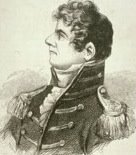Primate of Ireland on "the present madness of the Anglican Communion"
 The Most Revd Alan Harper is Archbishop of Armagh and Primate of All Ireland. At the feast of St. Mary Magdalene on July 22, he preached a sermon at Clonmacnoise, the monastery founded in 545 A.D. Apart from its status as an ancient site of Christian worship and community, Clonmacnoise (pronounced klŏnmăknoiz) is noteworthy for its ancient stone crosses.
The Most Revd Alan Harper is Archbishop of Armagh and Primate of All Ireland. At the feast of St. Mary Magdalene on July 22, he preached a sermon at Clonmacnoise, the monastery founded in 545 A.D. Apart from its status as an ancient site of Christian worship and community, Clonmacnoise (pronounced klŏnmăknoiz) is noteworthy for its ancient stone crosses.In his sermon +Armagh, as he is known, touched on several current theological controversies. He discussed the proposed Anglican Covenant and theological differences more generally. He likened a rigid Covenant and polemical differences, to a madness infecting our churches. He said they are like the boulder before the Lord's tomb, obstructions that can block us from the truth of our shared lives, history, and faith.
I have yet to meet any "leader" who does not treat with the utmost respect and indeed reverence the Holy Scriptures of the Old and New Testament. I have heard no one in this crisis deny the fundamental tenets of the faith as Anglicans have received them. Yet I have heard believing Christians attack other Christians for not believing precisely as they themselves believe. Equally, I have heard believing Christians attack other Christians for not attaching the weight they themselves attach to this biblical text compared with that.The full sermon is stored at The Church of Ireland.
This is not the way of Christ; it is the way of fallen humanity. It is a boulder of our own creation and I do not know who will help us to roll it away.
Some fear, and I am among them, that an Anglican Covenant, unless it is open and generous and broad, may simply become a further means of obstruction: a boulder, rather than a lever to remove what obscures and impedes our access to the truth that sets us free.
The truth is that the tomb is empty and we are called to live a new life in which resurrection and not death is the new reality; a life freed from the narrow constraints of human expectation, predictability and conformity; a life that confidently expects the disclosure of new vistas offered by the God whose very nature and purpose is to make all things new and make us part of His new creation.
Throughout history the way of the Church has been strewn with boulders of her own making. Those boulders conceal from us what God has already done and is continuing to do. They are boulders compounded of pride, hypocrisy and conceit, envy, hatred and malice and all uncharitableness.
From such things, good Lord, deliver us! And deliver especially this tortured Anglican Communion of Churches.




